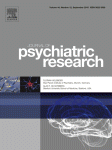 Earlier this year, we reported on the case of Robert Getzenberg of Johns Hopkins, who retracted a 2007 paper in Urology that was “at the center of two 2009 lawsuits brought by a company that funded the work.”
Earlier this year, we reported on the case of Robert Getzenberg of Johns Hopkins, who retracted a 2007 paper in Urology that was “at the center of two 2009 lawsuits brought by a company that funded the work.”
Getzenberg has now retracted a related paper, “Analysis of a serum test for prostate cancer that detects a second epitope of EPCA-2,” published in The Prostate in 2009 and cited nine times, according to Thomson Scientific’s Web of Knowledge.
The notice in The Prostate goes further than the one in Urology, using the word “falsification:” Continue reading Another retraction for potential prostate cancer test from Hopkins







